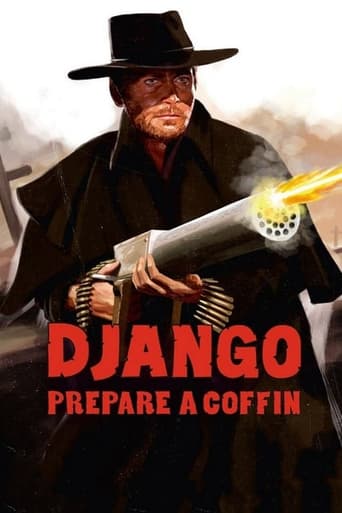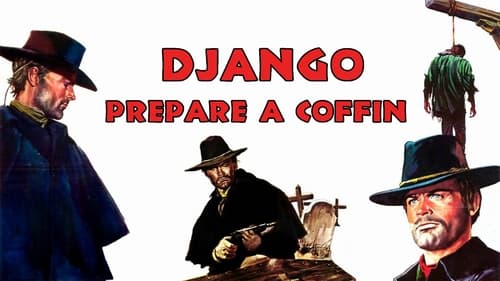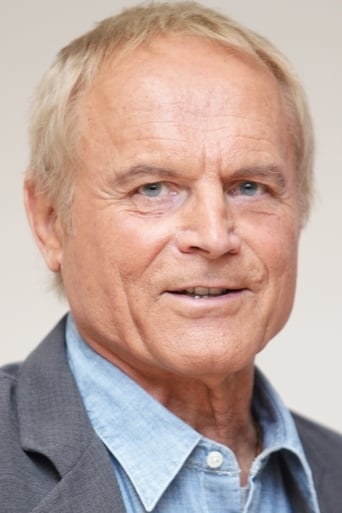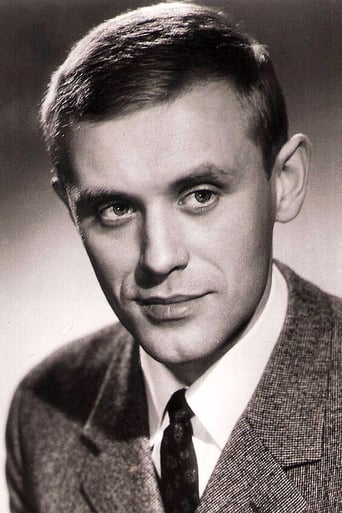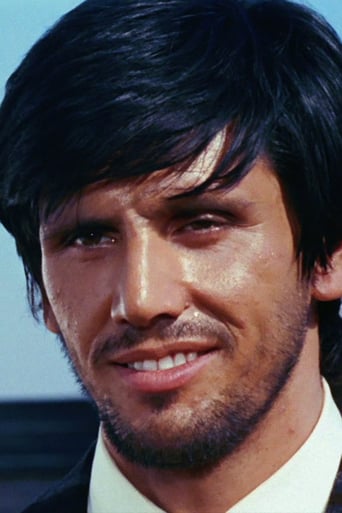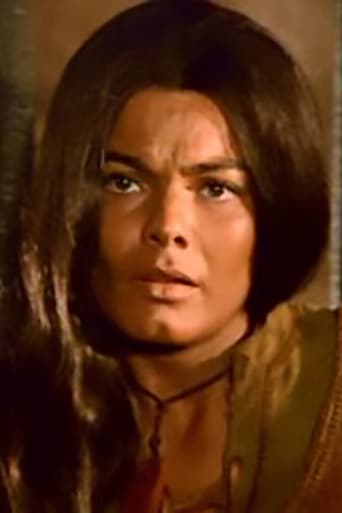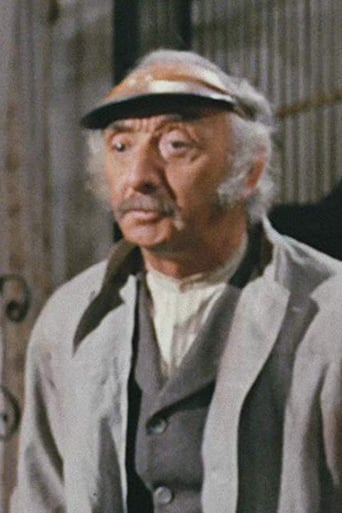zardoz-13
If you're counting, "Django, Prepare A Coffin" (1968), starring Terence Hill, was writer & director Ferdinando Baldi's second Spaghetti western. "Texas, Adios" (1966), with Franco Nero, marked Baldi's debut in the genre after years of helming sword and sandal sagas such as "Duel of Champions" with Alan Ladd and "Son of Cleopatra" (1964) with Mark Damon. Baldi would later make other westerns, such as "Rita of the West" (1968) with Terence Hill, "Forgotten Pistolero" (1969) with Leonard Mann, "Blindman" (1971) with Tony Anthony, "Get Mean" (1975) with Tony Anthony," and finally "Comin' At Ya" (1981), with Anthony again. Meantime, Corbucci's landmark western "Django" (1966) inspired countless in-name-only knock-offs galore. Eventually, Nero starred in director Nello Rossati's lackluster sequel "Django Strikes Again" (1987) that bore little resemblance to Corbucci's muddy western revenge opera. Django still has his faithful machine gun in this adventure yarn set in South America with our hero trying to become a monk. Nothing about "Django Strikes Again" has anything to do with the dusty Old West. The film seemed like another one of those Italian jungle movies about mercenaries. One of the many "Django" westerns that followed in the dust of the original "Django" was Baldi's "Django, Prepare A Coffin." Reportedly, Franco Nero was offered the lead role, but the actor headed off to Hollywood instead to co-star with Richard Harris in the Warner Brothers' musical "Camelot." Searching for a suitable actor to replace the steely-eyed Nero, Baldi settled on blue-eyed Terence Hill, who had previously been in two German westerns based on Karl May's western novels about the Native American character "Winnetou." At this point in his career, Terence Hill had yet to poke fun at westerns with his "Trinity" movies. Indeed, Hill plays it straight without a hint of humor in this shoot'em up. Moreover, Hill's Django differs from Nero's Django. While the streets are still muddy, Django appears here as if "Django, Prepare A Coffin" were a prequel. Django's hands haven't been stomped and broken so badly that he cannot shoot a six-gun. If you recall the original "Django," the eponymous hero desperately sought to balance a six-gun on a graveyard cross in a cemetery so he could kill the villainous Eduardo Fajardo. In "Django, Prepare A Coffin," Django's hands are as good as new, and he is a crack shot with a revolver. Like Nero's Django, Terence Hill's Django is married, but he has been working for a greedy, unscrupulous politician, David Barry (Horst Frank of "The Grand Duel"), but he stops working for him so he can escort a wagon-load of money to Atlanta, Georgia. Barry dispatches a cold-blooded killer, Lucas (George Eastman of "The Unholy Four"), to ambush Django and steal the gold. Lucas also kills Django's wife (Adriana Giuffrè) during the robbery. Five years elapse, and Django is nowhere to be found, but he has a job as a hangman. He wears black and he is unshaven. The catch is that Django refuses to hang anybody. Most of those criminals have been framed for their crimes by his own nemesis Barry. Instead, Django has fashioned a vest that enables him to fool spectators into believing that the condemned have been hanged. Essentially, Django drapes a hood over their heads so nobody can see that they haven't died. This sounds like what Blonde and Tuco did in Sergio Leone's "The Good, the Bad, and the Ugly." However, Django not only allows the condemned to live, but also requires them to join his gang that he is assembling to wreck vengeance on Barry. When three ungrateful men refuse to ride along with our hero and help him against Barry, Django guns them down in a fair fight. Somewhere along the way, one of the hanged men, a poverty-stricken Indian named Garcia (José Torres), decides to rob another gold laden wagon. After Garcia and his followers get the loot, each of them begins to die. The villains turn against themselves, and Garcia convinces them that they must cross over the border to be safe. While they are crossing the river, the treacherous Garcia picks them off like sitting ducks with his Winchester repeating rifle. By this time, the villains have learned about Django's plans for Barry. Barry's men capture Django and beat him up. The treatment that he suffers at their hands isn't as awful as what Nero endured in the original. Barry wants the money, and Django leads him to a sprawling graveyard where he plans to open a grave with the money in it. Instead, the coffin contains a machine gun, but Django uses it to wipe out Barry and his army of gunslingers. This is one of the standard tropes in Spaghetti westerns where one man wields a Gatling gun or a machine gun against the villains to mow them down.Although it isn't as great as the original "Django," "Django, Prepare A Coffin" qualifies as an above-average, dramatic, straight-faced Terence Hill western with little comedy, but plenty of action.
Bezenby
Django, you are a gullible one. Haven't you seen all them Spaghetti Westerns starring Horst Frank? He's not a good employer! Django finds this out the hard way when, following a successful election for Frank, Django gets ambushed transporting gold, his wife gets killed, and he gets turned into a vigilante killer! Worse still, he ends up taking a job as the hangman, but with motives! His motives involve not actually hanging folks as they are being framed by Horst Frank and sidekick giant George Eastman. So Django is forming his own little army of not-dead guys to get revenge on Frank and Eastman. Can he trust them? There's a gigantic amount of double crossing in this film which almost threatens to derail the entire film. Some of Django's guy double cross him, and then each other, until you stop caring about what's happening on screen and hope that at some point people will stop double crossing each other and you can just get to the big fight at the end.George Eastman is good in this one and has a memorable death. Terence Hill in non-comedy mode is pretty good (He's basically Franco Nero with a pointier nose) and I'm watching too many of these films now as Horst Frank seems to be in most of them and it's hard to separate what he does in one film from the other.This one plays out like an average Spag Western but there are enough quirks in there to make worth watching once. I love the way Arrow DVD have very slyly packaged the film so that unsuspecting folks would be it thinking they've bought Django Unchained!
Woodyanders
Shrewd roving gunslinger Django (an excellent and convincing performance by Terence Hill) gets hired by the sadistic Lucas (a perfectly nasty portrayal by the always imposing George Eastman) as a hangman to execute innocent folks who have been framed by Lucas. However, Django doesn't kill these men; instead he spares their lives and makes them members of his gang so he can get revenge on cruel and unscrupulous politician David (finely played by Horst Frank) for murdering his wife. Ably directed by Ferdinando Baldi (who also co-wrote the intriguing script), with a steady pace, a twangy, harmonic score by Gianfranco Reverberi (the jaunty theme song totally smokes), a compelling premise, slick cinematography by Enzo Barboni (the gliding tracking shots are especially impressive), a tough, serious tone, well-staged action set pieces (the expected rough'n'ready fisticuffs and fierce shoot-outs are both smack dead on the money exciting while a thrilling stage coach robbery rates as the definite pulse-pounding highlight), and strong central themes concerning honor and revenge, this movie certainly makes the grade as a superior spaghetti Western winner. Kudos are also in order for the sound acting from the capable cast: Hill excels in a juicy lead role, with bang-up support from Frank, Eastman, Jose Torres as the lethal, treacherous Garcia, and the lovely Barbara Simon as Garcia's fetching, loyal wife Mercedes. Recommended viewing for spaghetti Western buffs.
Michael A. Martinez
Really, really good old fashioned Spaghetti Western starring a young Terence Hill as the titular gunslinger.Gianfranco Reverberi's music is one of those old Western songs that just gets stuck in your head. I haven't seen the film in about four years and still remember the theme song beat-for-beat. Great cast too: with George Eastman, Horst Frank, Guido Lollobrigida, and Luciano Rossi (who dies like he does in every other movie). The dramatics is all melodramatic enough to the point of almost being funny, like with the action sequences where whoever is supposed to win just kicking ass and never getting hit once.It's also interesting to note that this film has almost the exact same structure as Kurosawa's Yojimbo / Leone's Fistful of Dollars, yet it throws in enough variation (and "Django-ism") to retain its own unique and colorful feel. The best scene is definitely the ending showdown in the cemetery. Much better filmed and more comic book-style than anything in the original DJANGO - plus a lot more fun. I never really was a big 60's Spaghetti Western fan, but I still liked this movie quite a bit, which definitely says something.
